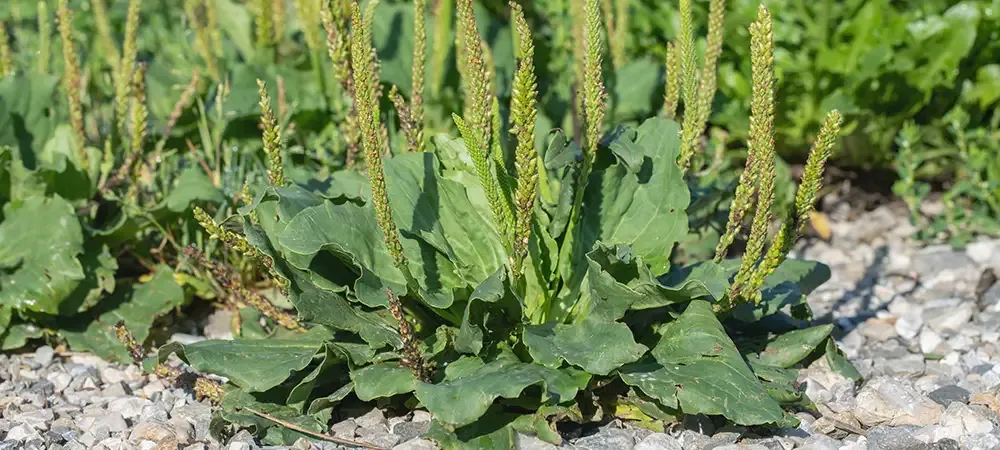Does Vinegar Kill Weeds?

Imagine finally finding a quick, natural way to get rid of weeds without resorting to those harsh chemicals. Many gardeners swear by vinegar as an immediate, earth-friendly killer of weeds, but does vinegar kill weeds effectively, or is this some kind of gardening myth? More importantly, does vinegar kill the root, or will those weeds just grow right back?
Before reaching for that bottle of white vinegar, it's good to know the science behind this popular do-it-yourself weed killer, its effectiveness, and possible risks it might pose to your lawn..
Does Vinegar Kill Weeds? The Science Behind the Method
Yes, vinegar kills weeds—but how well it works depends on several factors. Vinegar is a contact herbicide, meaning it destroys plant cells on the surface rather than systemically attacking the entire plant. The active ingredient, acetic acid, draws moisture from the leaves, drying out and killing the weed’s top growth.
But there's a catch: does vinegar kill the root? Not always. While vinegar will work great for small, young weeds, most established perennials and deep-rooted weeds will grow back unless treated multiple times.
How Vinegar Works as a Weed Killer
- Desiccation (Moisture Removal): The acetic acid breaks down cell walls, dehydrating the plant.
- Contact Kill: Only affects the parts of the plant it touches—roots remain largely unaffected.
- Best for Annual Weeds: Works best on small, shallow-rooted weeds in their early growth stages.
Does White Vinegar Kill Weeds?
Many people wonder, does white vinegar kill weeds effectively? The answer lies in the concentration of acetic acid.
- Household Vinegar (5% Acetic Acid): May burn weed leaves but rarely kills the entire plant. Often requires repeated applications.
- Horticultural Vinegar (20-30% Acetic Acid): Much stronger, with an 85-100% kill rate, but can be dangerous to handle and damage surrounding plants.
For a stronger DIY weed killer, some people mix vinegar with salt and dish soap.
Homemade Vinegar Weed Killer Recipe
- 1 gallon of vinegar (higher acetic acid concentration works best)
- 1 cup of salt (helps dehydrate weeds further)
- 2 tablespoons of dish soap (helps the mixture stick to leaves)
Application Tips
- Apply on warm, sunny days for maximum effectiveness.
- Target young weeds before they develop deep roots.
- Spray directly on the leaves without over spraying onto desirable plants.
- Avoid applying before rain or wind, as it can dilute the effect or spread to unwanted areas.
Does Vinegar Kill Grass?
Here’s what many people don’t realize—vinegar doesn’t just kill weeds; it kills grass too.
Because vinegar is a non-selective herbicide, it doesn’t differentiate between weeds and your lawn. Even small amounts can damage grass by drying out its leaves and causing:
- Brown spots: Patchy, dead areas in the lawn.
- Leaf curling: Grass blades shrivel and turn brittle.
- Complete plant death: Higher acetic acid concentrations (20-30%) can wipe out entire sections of grass in a single application.
How to Use Vinegar Without Killing Grass
- Spot-treat weeds using a paintbrush or a direct spray.
- Protect the surrounding grass with plastic sheeting before spraying.
- Apply on calm days to prevent vinegar from drifting onto nearby plants.
- Use with caution—even diluted vinegar can cause damage over time.
The Bottom Line: Should You Use Vinegar for Weed Control?
So, does vinegar kill weeds? Yes, but with limitations. While it can be a useful tool for spot treatments on driveways, sidewalks, and garden beds, it’s not always the best choice for lawns. Since vinegar doesn’t always kill the root, persistent weeds may return, requiring multiple treatments. And if you’re not careful, it can easily harm your grass.
For a long-term, effective solution, professional weed control is the best approach. A local lawn care company like The Green Team can provide targeted treatments that eliminate weeds while protecting your grass, ensuring a healthy lawn year-round. If you’re tired of battling stubborn weeds, contact our team today to discuss the best weed control options for your yard.

